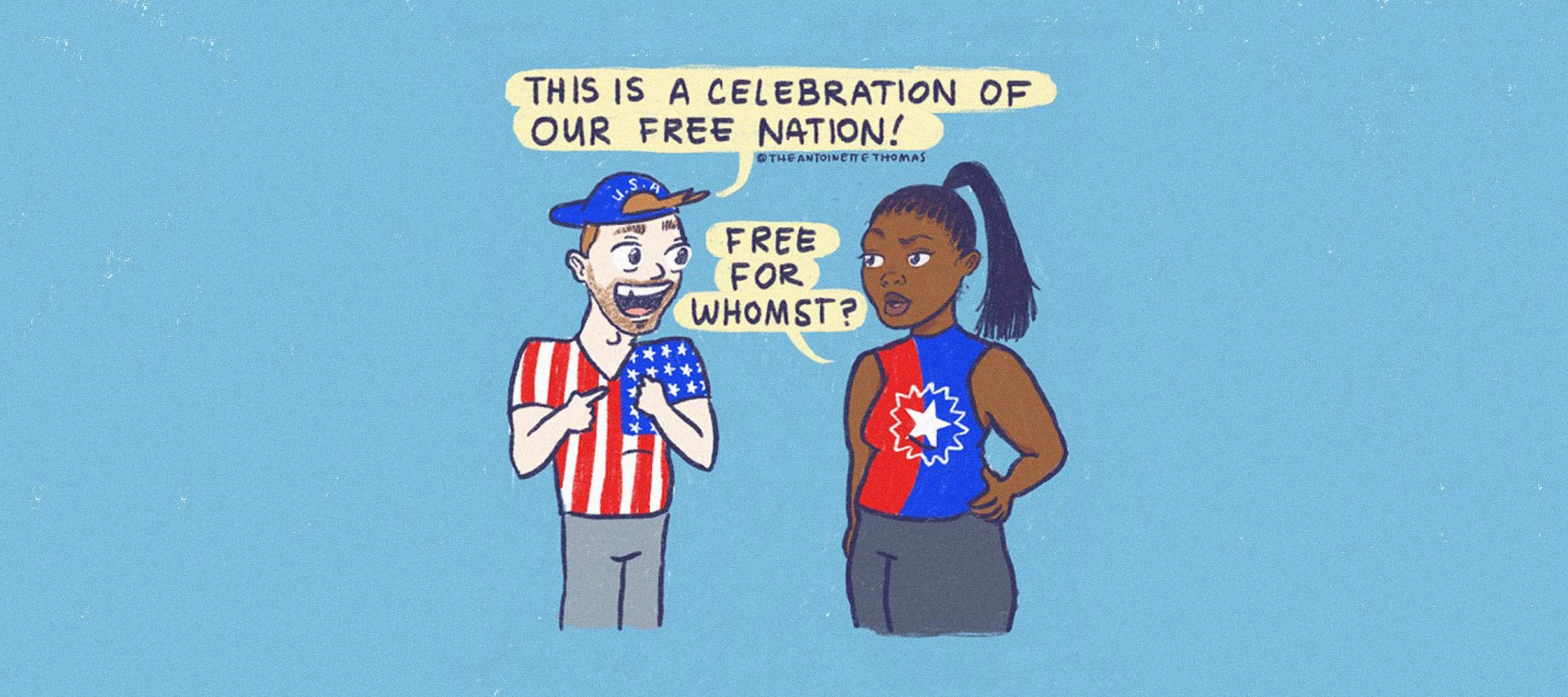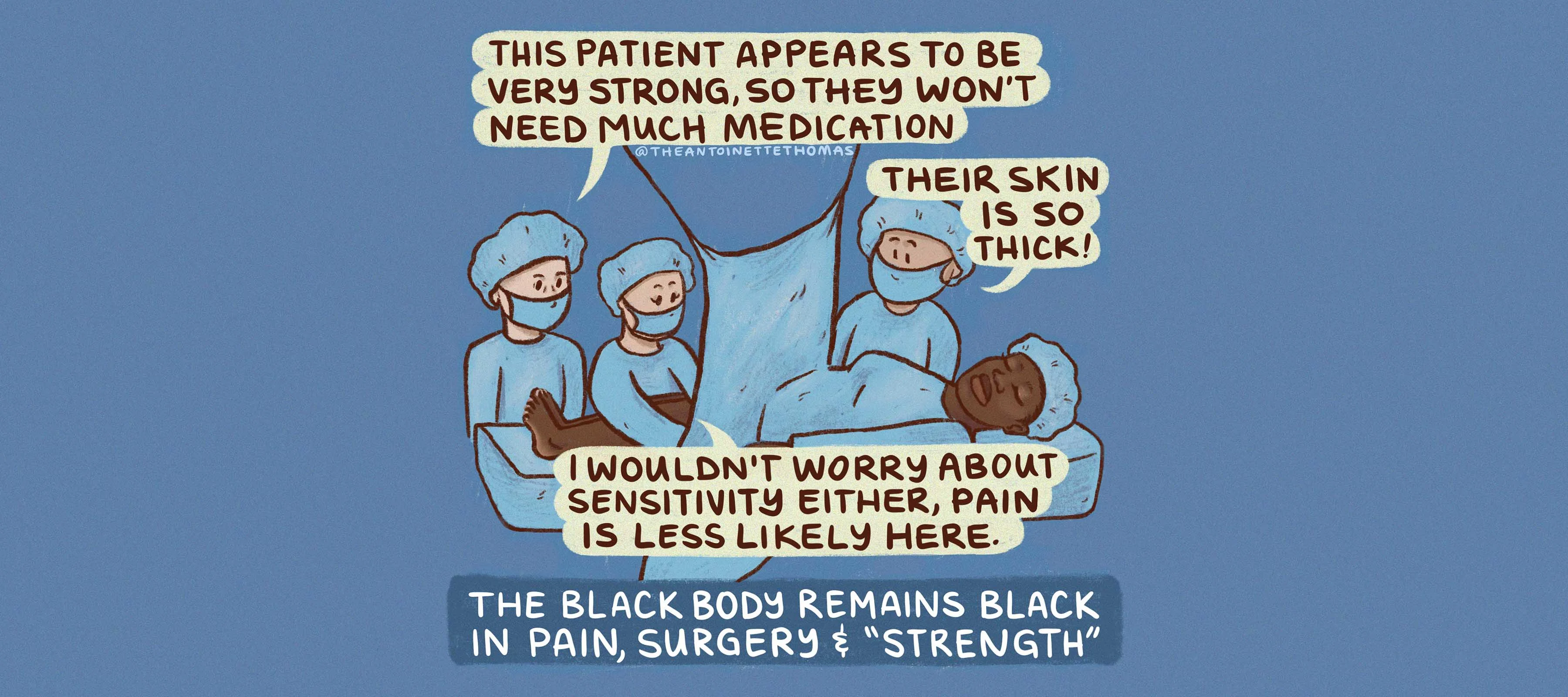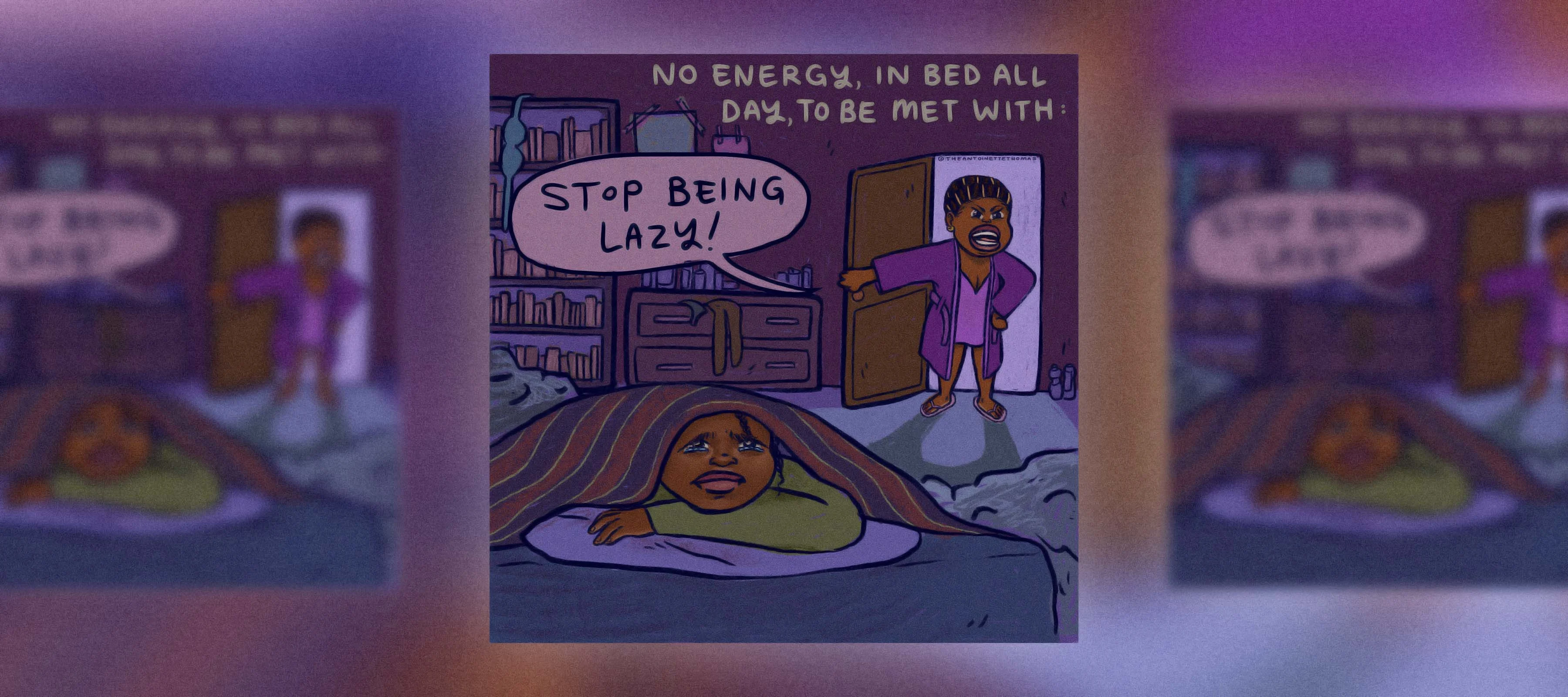For Juneteenth and Beyond, Change Can't Wait
- 21 June 2021
- ByAntoinette Thomas
- 2 min read

Big Cartel Art Works is our initiative to provide work, opportunity, and creative freedom to artists in this time of uncertainty. As the pandemic has intersected with overdue discussions on racism and inequality, we have been commissioning some projects that stretch beyond our normal areas of expertise. We are continuing to learn and elevate stories that we all need to hear.
We’re doing our work to understand - and undo - the harm caused by systemic racism and racist atrocities. Here with words and a comic, Antoinette Thomas talks about the past, present, and future of Juneteenth.
When I think of Juneteenth and what it represents I can’t help but think of how US history depicts our country as a false symbol of unity. "July 4th is when our nation became independent" but independent for who? Not for Black people or Native Americans. "Women got the right to vote in 1920," but Black women didn’t get to vote until 1965. As the Martin Luther King saying goes, "We are not free, until we are all free."
Juneteenth is the celebration of the official end of slavery. Although the Emancipation Proclamation took place in 1863, federal troops arrived two years later at Galveston, Texas where Black people were still enslaved. General Granger was there to announce that all enslaved Black people were to be freed. Some enslavers withheld this information from enslaved people until harvest season. "There was a mixed victory for the newly freed slaves, who, on the one hand, had finally been granted freedom, but who also faced increased violence," explains Jill Anderson.
Over the decades many Black people resettled through the Great Migration, survived Jim Crow laws, the KKK, and countless other atrocities. It is not enough to live in the land of the free if the life expectancy of a Black person is shortened through systematic racism. Like anyone else, I love a day off to eat and spend time with friends and family as one does on July 4th. The sense of patriotism for many Black folks however, is little when they know they were good enough to fight and die for this country’s independence, but not good enough to be considered humans, let alone citizens, of said country at that time.
Juneteenth is the oldest commemoration of the end of slavery. It is celebrated with gatherings and festivities every year. In some states there are parades for it. In 1980 it became a public holiday in Texas, and then slowly became recognized by other states. Juneteenth gained more traction due to the George Floyd protests of summer 2020, so it then became a public holiday in Virginia and New York just last year. Still, it isn’t commonly known about around the country, even though it has now become an official federal holiday.
Juneteenth also has its own flag. It was created by Ben Haith, founder of the National Juneteenth Observation Foundation in 1997. Its red and blue colors make a curved horizon, where a white star sits slightly above it with a bursting outline surrounding the star. It is meant to symbolize a new beginning for African Americans. But 155 years later and a significant day such as this is not much of a concern for the non Black population.
As we learn about Juneteenth, watch a segment, or share a post, hearings are being held to pass a bill wanting to ban critical race theory from being taught in schools. A few concepts they aim to prohibit teaching are "an individual is inherently racist, sexist or oppressive, whether consciously or unconsciously." "The advent of slavery constituted the true founding of the United States." And "an individual bears responsibility for actions committed in the past by other members of the same race or sex."
We do not live in a post-racial world yet. So what will non Blacks do to support a people that are more likely to be impoverished, sent to prison, killed by police, sexually assaulted more than any other race, and disenfranchised in every way possible, today? In your United States. By doing nothing white supremacy is being upheld.
Acknowledgment is good, but to have a fighting chance for autonomy where your Blackness does not dictate whether you live or die today would be great, too.
21 June 2021
Words by:Antoinette Thomas
Tags
- Share

